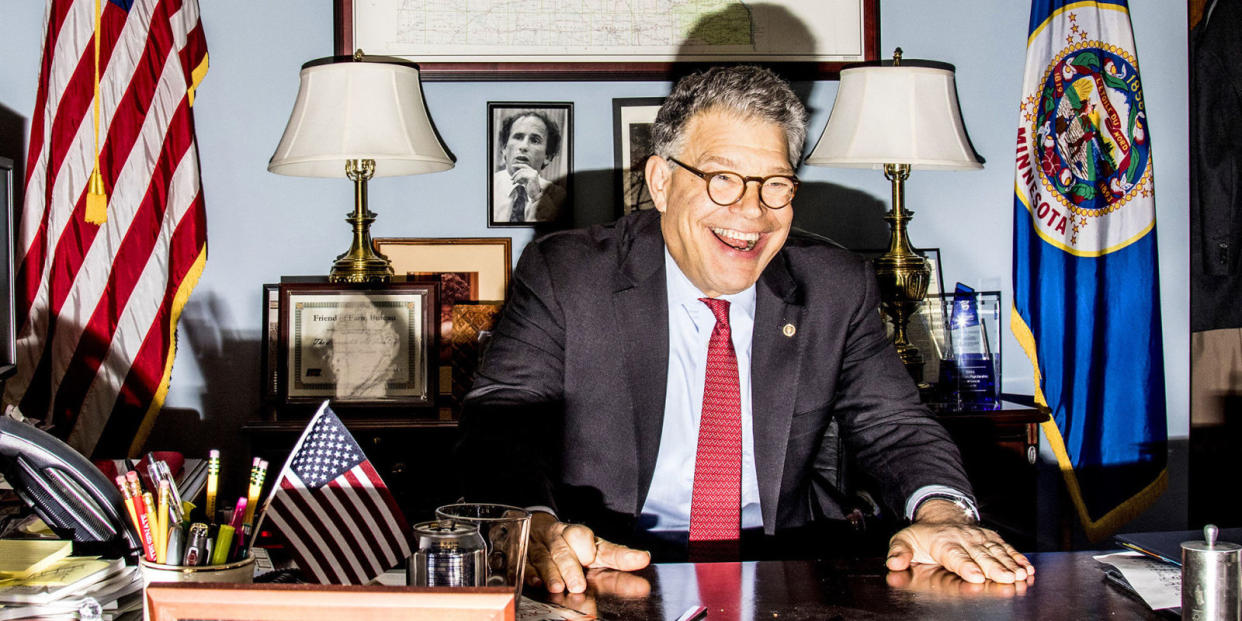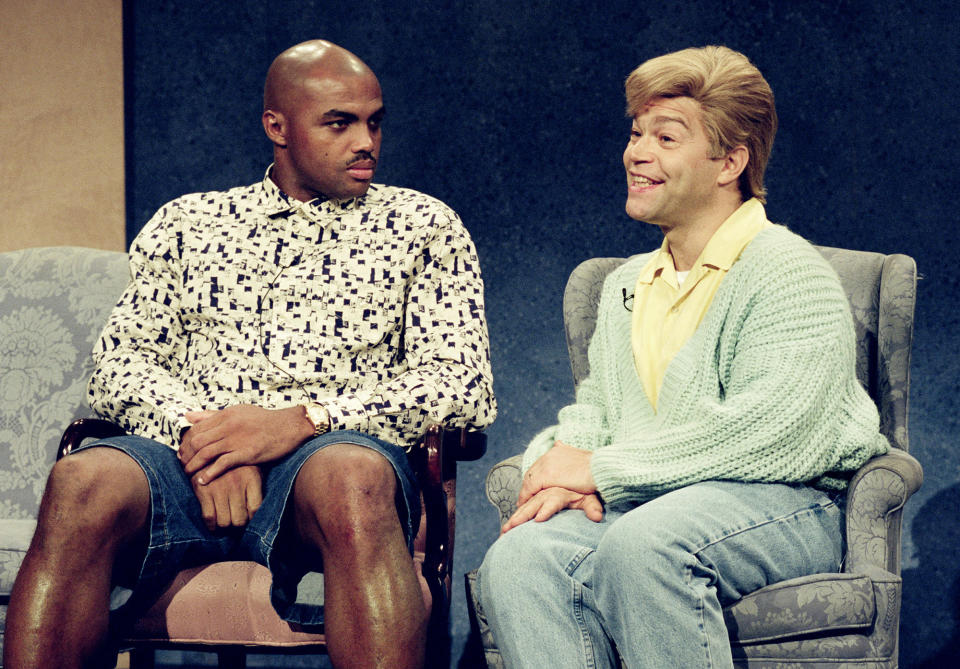Al Franken, Absurdity Expert, Is a Man for Our Political Times

On a sunny spring afternoon in a Washington apartment downslope from the Capitol, Minnesota's Democratic junior senator, Al Franken, took stock of a busy and, well, strange week during which he made a rare mention of his previous career-a writer-performer for SNL-while grilling a former reality TV star's Supreme Court nominee, Neil Gorsuch. Having been reelected in a landslide for a second term after squeaking into the Senate through a recount for his first, Franken, 66, has written a clear-eyed and, yes, frank memoir, Al Franken, Giant of the Senate, covering everything from his days at NBC to his emergence as a leader of the loud legislative resistance.
Charles P. Pierce: I did a profile of John McCain back in 1998 when I joined Esquire, and I talked to [Minnesota senator Paul] Wellstone, just because I wanted to talk to Wellstone and now I had an excuse. I've never met a guy with so many enthusiasms.
Al Franken: He had unbelievable energy and heart and intellect. I never really considered running for office until after he died, and I read the first profile of [his Republican successor] Norm Coleman in Roll Call, and Coleman, who's chewing on an unlit cigar with his feet up on his desk, says, "To be very blunt . . . I am a 99 percent improvement over Paul Wellstone."
CPP: And rather than driving up to his house and punching him in the face, you ran against him in 2008.
AF: Well, I just went, "Who's gonna beat this guy?" I didn't necessarily think it was going to be me, but I started talking to my wife and said, "You know, we're gonna be empty nesters. We can move back to Minnesota. . . "

CPP: When you came to the Senate, you lowered your profile and learned how to be a senator. Was that something you were conscious of having to do?
AF: Extremely conscious! I had won by 312 votes! I had a lot to prove. During the campaign-it was a very vicious campaign, which I talk about in the book-they put everything I'd ever done in comedy through the "Dehumorizer." And when you rob things of their context-and, you know, in comedy you use irony, and ambiguity, and hyperbole-well, they all look bad when you put 'em through this $15 million machine with advanced Russian technology. Minnesotans were concerned that I was not there to do a serious job. I remember I went to an economic development meeting, and I see this businessman there who looks pretty damn Republican. The next day, I see him on the plane back to Minneapolis, and he says, "You were a lot better than I thought you'd be." And I said, "Thanks for having such low expectations!"
CPP: I grew up reading all those Allen Drury books [such as the Pulitzer-prize-winning 1959 novel, Advise and Consent] about how the Senate was this real club that was supposed to be insulated from the passions of the day. That's gone.
AF: That's totally gone. Part of it is campaign finance, because of Citizens United, and part of it is the 24-hour news cycle and the Internet and where people get their information. It's rougher now. You can't be insulated.
CPP: Is it working on behalf of your constituents that stops you from becoming a complete cynic and just throwing up your hands?
AF: It's hard to be cynical when you see people in your state doing great things. You go to a Career Pathways roundtable and everybody's putting their heads together and going, "How do we keep our kids here?" Or "How do we also make sure that we keep our businesses supplied with skilled labor?" I don't know what party anyone's in, and I don't care. When you talk to people like that, you go, "Okay, this is about real stuff."
CPP: During the Gorsuch hearings, you seemed genuinely angry about Gorsuch's ruling against that truck driver who had been fired for abandoning his broken-down trailer in subzero weather.
AF: I was very angry, because I knew that Gorsuch wasn't being honest. I said, "What would you have done?" Would you have just stayed there and maybe frozen to death? Or would you do what he did and unhook the trailer, go find a warm spot, warm up, and then come back-he came back! Everybody in that huge room would've done exactly what the driver did, but Gorsuch said, "Oh, Senator, I don't know what I would've done-I wasn't in his shoes."
CPP: Neither was the driver at that point.
AF: Well, he couldn't feel his shoes. Now, I know that wasn't an honest answer. Gorsuch would've done what everyone would've done, but he didn't want to say that because he had ruled against the guy on something called the plain-meaning rule. I'm not a lawyer, but I've been on the Judiciary Committee for eight years, so I know the exception to the plain-meaning rule: You can't do it if it's an absurd result. And I said that I used to make a living finding absurdity, and this result was absurd.
CPP: Washington is a target-rich environment on occasion.
Respond to this post on the Esquire Politics Facebook page.
You Might Also Like

